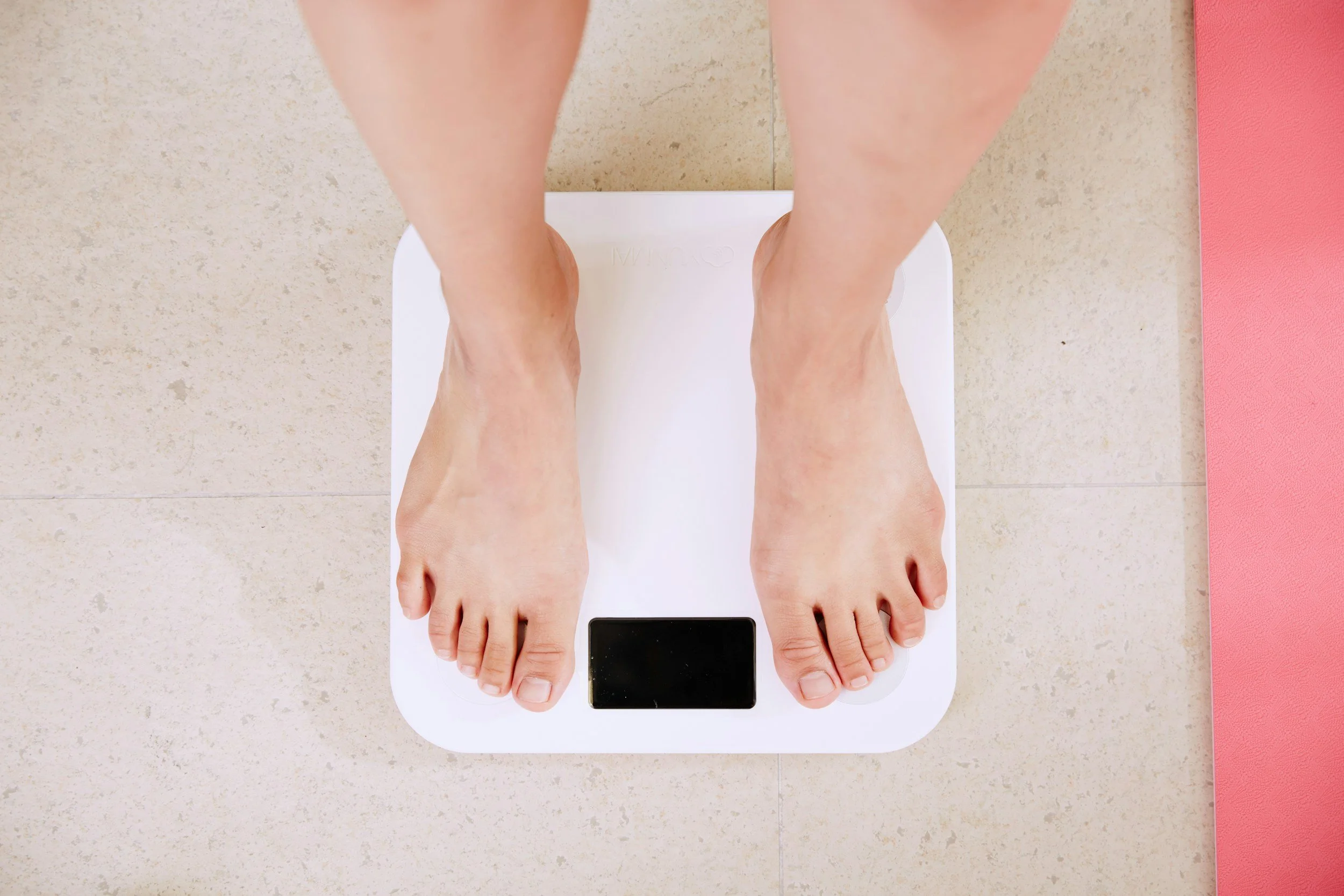From Skinnytok to Ozempic: Navigating the Pressure to Lose Weight When Trying to Heal From an Eating Disorder
Lately it feels like the pressure to lose weight is the most pervasive it’s been since the 90’s (where are my fellow 90’s kids at?!). The 2010’s felt like such a refreshing shift, while body ideals still very much existed, for a small moment in time, women and femmes were granted a little more flexibility in terms of body size and shape. Of course, it was never truly inclusive of fat folks, and if you were “curvy” it had to be in the “right” way (thanks, Kardashians). Obviously, it was far from perfect, but compared to the heroin chic trends of the 90’s, there was at least a little relief.
The rise of #skinnytok, ozempic & Conservative politics
Fast forward to now, 2025. We have SkinnyTok all over our social media feeds. We have Ozempic, Wegovy, Terzepitide and about a million other GLP-1 weight loss medications shoved down our throats on TV ads, social media ads and not to mention- our uncles and aunties parading their new “ozempic” body. GLP-1’s are sold in doctor’s offices and med spas. You can buy them online. They are approved for kids and teens even (gasp). The accessibility has increased exponentially and it feels like everyone is on them, or has at least tried them. Olympic athletes take them. Celebrities who already had small bodies take them. Celebrities who once embraced (at least outwardly) their bigger bodies, are now flaunting their ultra thin bodies after taking weight loss medications. And this isn’t to shame anyone who chooses to utilize these medications. Everyone has the right to do what they wish with their bodies and it makes sense to want increased body privilege in a world that demonizes fat bodies. The anger I feel about this belongs to the system of anti-fatness, weight stigma and sexism. There is almost no discussion around the lack of long term studies of these medications, or the negative side effects - which can include pancreatitis and even thyroid cancer! Not to mention, the reality that when you stop using these drugs, you are likely to gain back all of the weight lost and sometimes, more.
What do conservative politics have to do with this?
Whenever there is a shift to conservatism in the western world, there is a shift towards increased advertising of the idea that thinness = health or thinness = beauty. There are literal studies that have studied this across time! Why then- might conservative ideals lead to more rigid body ideals? Is it about controlling women? Keeping us preoccupied on the size of our bodies so we don’t notice that we are simultaneously losing our rights to bodily autonomy, equity and inclusion? You have thought about how the rise of Ozempic has grown alongside the fall of Roe v. Wade, right?!
If you’re interested in hearing an insightful conversation on this topic, listen to my podcast episode with dietician, Abbie Attwood.
Manufactured self hate
My point is, we are made to feel like we are not enough so that those in power get to stay in power (cis hetero white men). We are made to hate our bodies. We are conditioned to think thin = better. When you have a history of an eating disorder or body dysmorphia, like me, this is extra scary. Any attempts at intentional weight loss carry great risk of relapse for someone with the history or genetics for an eating disorder. In fact, dieting is the number one risk factor for developing an eating disorder! And when the cultural pressure rises, it becomes that much harder to fight those old eating disorder urges. Something that helps me is to reflect on what I am actually seeking when the desire for a smaller body pops up into my mind. This helps me uncover what is fueling this desire, so that I can tend to that unmet need without taking it out on my body and risking relapse. This also helps me reconnect to my values and stay committed to recovery.
Here are 4 questions I ask myself when tempted to shrink my body:
What is it that I think weight loss will give me? What am I actually seeking (ex. connection, acceptance, validation, safety)?
What else is going on in my life that might be adding to my body insecurities? Am i navigating a hard season of uncertainty, transition or grief?
Have I been comparing myself to peers, family or people in the media? What about their lives am I longing for besides their body size?
Would attempting to lose weight make me complicit in a system I actually don’t align with?
(ex. sexism, anti-fatness, ageism, etc)
I encourage you to take some time to reflect on these questions, journal about them, even bring them into your own therapy! Give yourself permission to delay acting on the urge to attempt weight loss and explore what is going on underneath the surface first. Ultimately, the hope is that this insight and reflection will help you identify unmet needs that you can tend to instead of trying to change your body. Below are some reminders to help you strengthen your recovery!
Eating Disorder Recovery Reminders:
The bodies and faces you see online are fake or edited in some way. Filters, body modification, lighting, angels- it’s all done to distort reality. Comparison to something fake just doesn’t make sense!
Changing your weight/shape/size from its natural set point isn’t going to lead to happiness. It’ll lead to shame, obsession and a hollow-feeling life.
It’s valid to want safety, love and acceptance. Can we tend to that part of you vs. buying into the rhetoric that changing your body will *truly* and *authentically* get you these things in way that is realistic to maintain?
Surround yourself with people committed to body acceptance and neutrality. Use boundaries and caution around spending time with anyone makes you feel worse in your body.
Final Thoughts
I hope this helps offer some perspective and also validation to the very real desire to achieve the “ideal” body. Society sells us so many message about how much greater our life would be with a smaller body- but nothing is worse than feeling trrapped in an eating disorder.
I am rooting for you, this battle is so hard. If you want support in eating disorder recovery, body image, trauma, anxiety or more- my team would be honored to support you. We offer therapy in CA, WA, UT, MD and FL. We also offer recovery coaching worldwide. Reach out and let’s get started!


